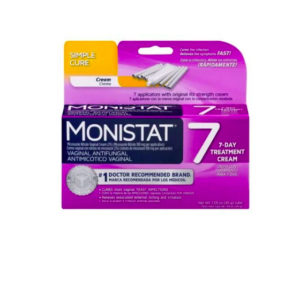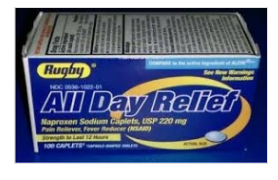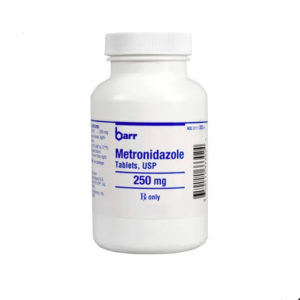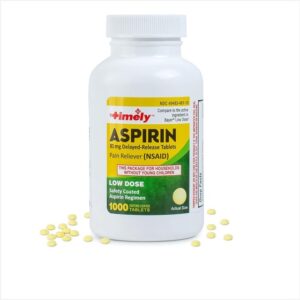Aspirin 81 mg
Low-dose aspirin (81 mg) is the most common dose used to prevent a heart attack or a stroke. But the dose for daily aspirincan range from 81 mg to 325 mg. One low-dose aspirincontains 81 mg. One adult-strength aspirin contains about 325mg.
Description
Low-dose aspirin (81 mg) is the most common dose used to prevent a heart attack or a stroke. But the dose for daily aspirincan range from 81 mg to 325 mg. One low-dose aspirincontains 81 mg. One adult-strength aspirin contains about 325mg.
Who should take aspirin?
For people who have had a heart attack: Aspirin can help prevent a second heart attack. Your doctor has probably already prescribed aspirin for you.
For people who have had a stroke: Aspirin can help prevent a second stroke or a transient ischemic attack (TIA), which is often a warning sign of a stroke.
For people who have never had a heart attack or stroke: Talk to your doctor before you start taking aspirin every day. Aspirin lowers the risk of heart attack. But aspirin can also cause serious bleeding. And it is not clear that aspirin can help prevent a stroke if you have not already had a heart attack or stroke in the past. You and your doctor can decide if aspirin is a good choice for you based on your risk of a heart attack and your risk of serious bleeding. For help on this decision, see: Aspirin: Should I Take Daily Aspirin to Prevent a Heart Attack or Stroke?
Aspirin may also be used by people who:
- Had bypass surgery or angioplasty.
- Have peripheral arterial disease.
- Have atrial fibrillation.
Who should not take aspirin?
People who have certain health problems shouldn’t take aspirin. These include people who:
- Have a stomach ulcer.
- Have recently had a stroke caused by bleeding in the brain.
- Are allergic to aspirin.
- Have asthma that is made worse by aspirin.
If you think you are having a stroke, do not take aspirin because not all strokes are caused by clots. Aspirin could make some strokes worse.
Gout can become worse or hard to treat for some people who take aspirin.
If you take some other blood thinner, talk with your doctor before taking aspirin, because taking both medicines can cause bleeding problems.
What precautions do I need to take?
Limit alcohol
Drinking 3 or more alcoholic drinks every day while taking daily aspirin increases your risk for liver damage and stomach bleeding. If your doctor recommends aspirin, limit or stop alcohol usage.
Talk to doctor before a surgery or procedure
Before having a surgery or procedure that may cause bleeding, tell your doctor or dentist that you take aspirin. Aspirin may cause you to bleed more than usual. He or she will tell you if you should stop taking aspirin before your surgery or procedure. Make sure that you understand exactly what your doctor wants you to do.
Do not suddenly stop taking aspirin without talking to your doctor first. Talking to your cardiologist first is especially important if you have had a stent placed in a coronary artery.
Tell your doctor if you notice that you bruise easily or have other signs of bleeding. These include bloody or black stools or prolonged bleeding from cuts or scrapes.
Tell your doctor about all your medicines
Aspirin should not be taken with many prescription and over-the-counter drugs, vitamins, and natural health products. So before you start aspirin therapy, talk to your doctor about all the drugs and other remedies you take.
Be careful taking pain relievers
Although non-steroidal anti-inflammatory drugs (NSAIDs), such as ibuprofen and naproxen, relieve pain and inflammation much like aspirin does, they do not affect blood clotting in the same way that aspirin does. Do not substitute NSAIDs for aspirin. NSAIDs may increase your risk for a heart attack or stroke.
Take NSAIDs safely. If you need both aspirin and an NSAID pain reliever every day, talk to your doctor first. Ask your doctor what pain reliever you should take. You may be able to use another type of pain reliever, such as acetaminophen, to treat your pain.
If you take an NSAID every day, your doctor may recommend that you take the NSAID and aspirin pills at different times. If you take these pills at the same time, aspirin might not work as well to prevent a heart attack or stroke. Do not take the NSAID pill during either the 8 hours before or the 30 minutes after you take aspirin. Here’s an example: Take your aspirin. Wait 30 minutes. Then take your NSAID.
If you take an NSAID once in a while, it does not seem to cause problems with aspirin.





